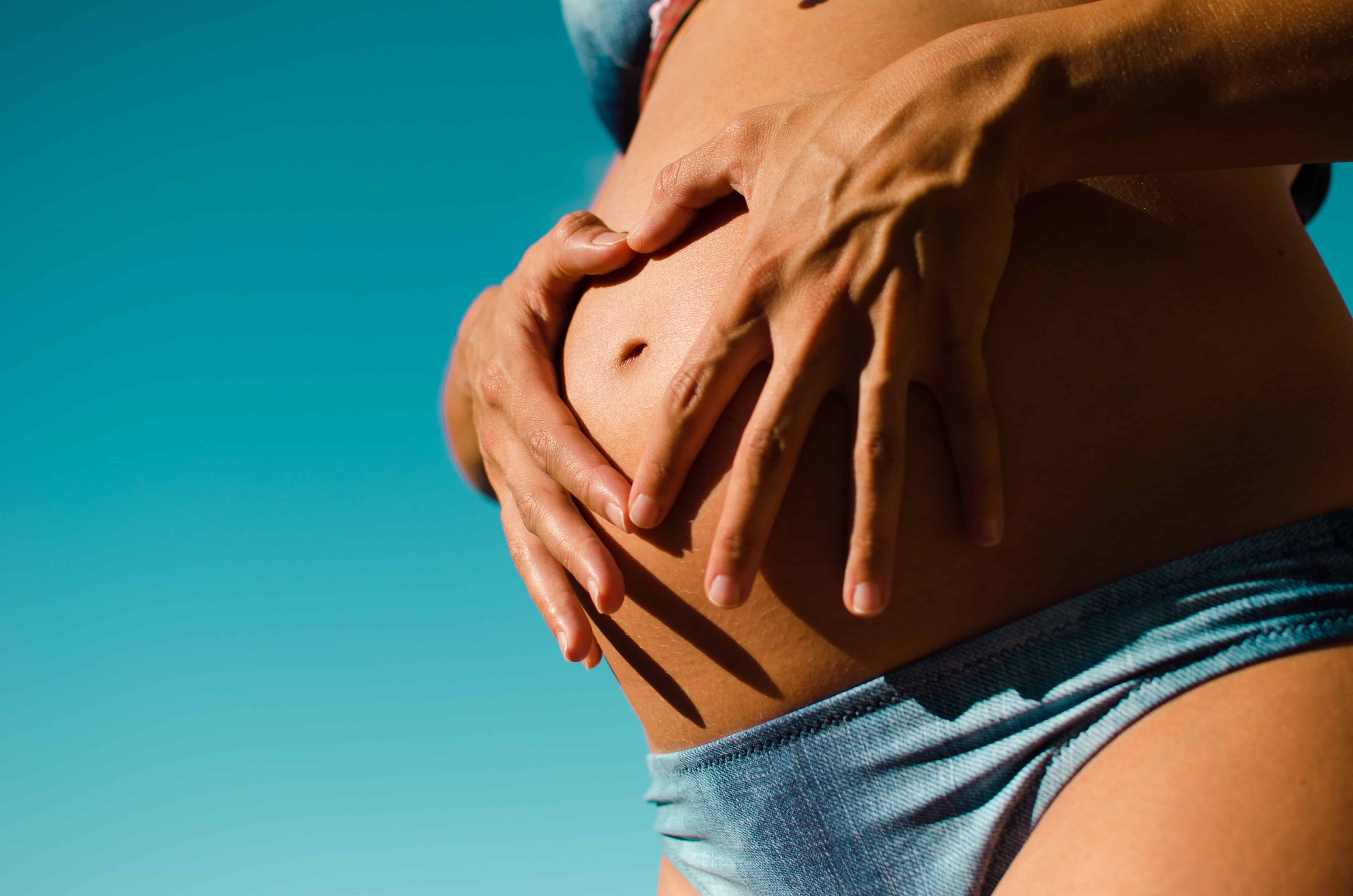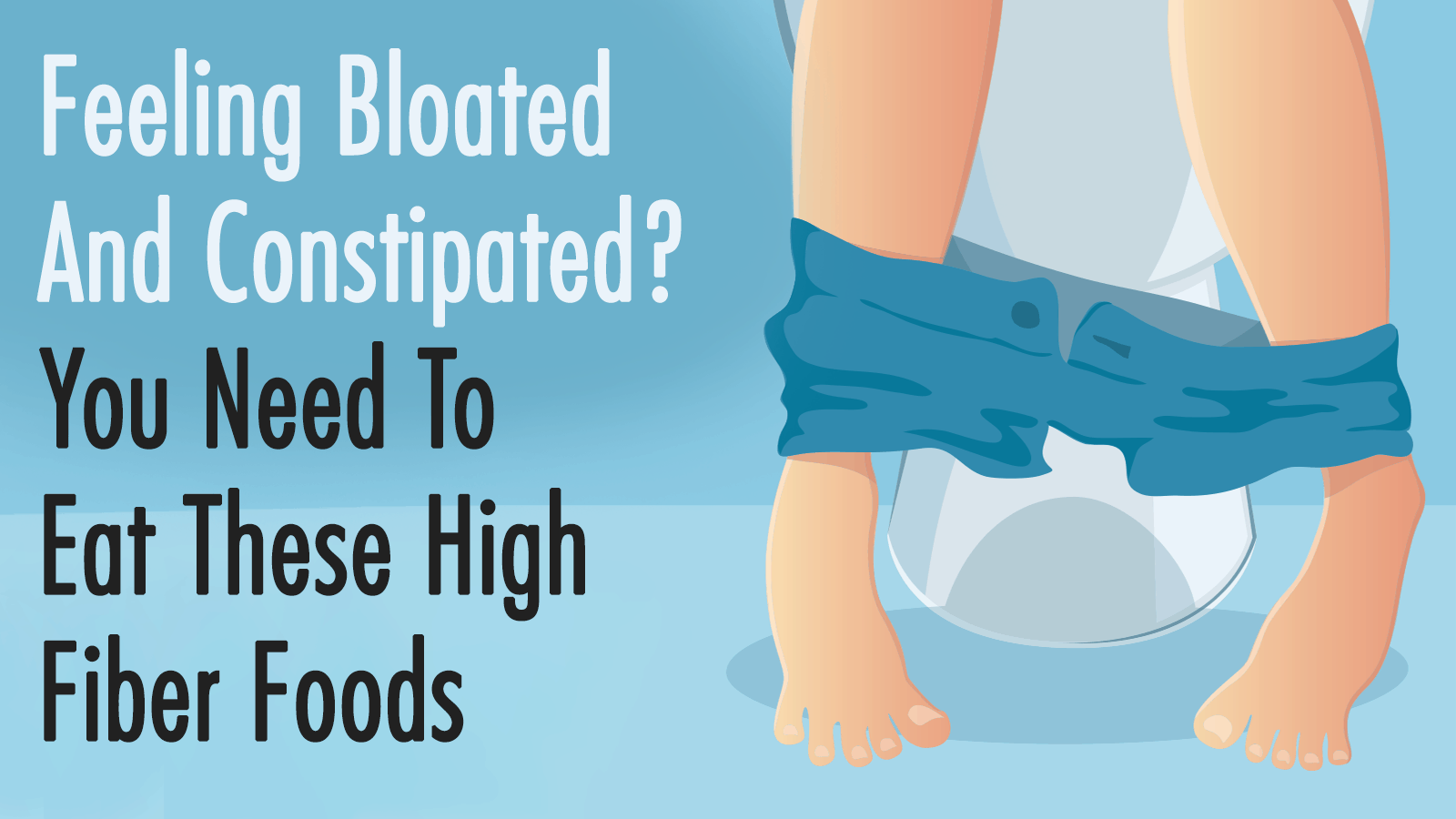Do you have “fat days” when suddenly you can barely button your pants? Excess gas in the intestines, or bloating, can make you puffy and swollen. It’s a fairly common problem affecting between about 16 to 30 percent of us. It’s especially common in women.
Being bloated often can be caused by a serious medical problem, but health experts say most of the time a bloated stomach is caused by certain foods, bad eating habits, or hormones. Numerous medications can cause excess gas. Prescription and over-the-counter meds to watch out for include antidepressants, iron pills, antihistamines, and calcium supplements with bicarbonate or carbonate.
If you’ve ruled out meds as the culprit, consider these 10 proven ways to get rid of a bloated stomach:
1. Rule Out Food Allergies
Food allergies are relatively common and can cause intolerance to certain foods. These foods can cause excess gas production, resulting in a bloated stomach and other symptoms. Common foods people have an intolerance to include lactose, fructose, eggs, wheat, and gluten. Use a process of elimination to determine if you may have a food allergy. Work along with your doctor to resolve the issue.
2. Eat Smaller Meals
Do you tend to eat a lot at one meal and feel stuffed? People who have a tendency to bloat feel over-full on smaller amounts of food than others. Try eating smaller meals more often. This may require adding an extra meal to your day.
3. Avoid Swallowing Air
Swallowing too much air when eating is a big cause of a bloated stomach. Try eating more slowly and chewing more thoroughly. This cuts down on the amount of air you swallow. Watch out for snacking on the go and eating fast. Other culprits of swallowing air include talking while eating, drinking through a straw, chewing gum, and drinking lots of carbonated beverages.
4. Avoid Gassy Foods
Some foods are known to be a problem, especially high-fiber foods like beans and some whole grains. Fatty foods can also cause problems for some people since they slow down digestion and the emptying of the stomach. Foods that make you feel bloated vary from one person to another. Keep a food diary to find your own triggers.
5. Watch Out for Sugar Alcohols
Sugar alcohols are in sugar-free foods and chewing gums. Some consider them safe alternatives to sugar, but in high amounts, they may cause digestive problems. Sugar alcohols are digested in the large intestine and produce gas. They are a type of carbohydrates known as FODMAPs and can cause create gas, especially in people with irritable bowel syndrome.
6. Try Digestive Enzyme Supplements
Look for over-the-counter products to help with a bloated stomach. They contain supplemental enzymes that can help break down indigestible carbohydrates. Some to try include Lactase and Beano. Lactase breaks down lactose, and Beano contains alpha-galactosidase, an enzyme that helps break down hard-to-digest carbs.
7. Take Probiotics
Many different bacteria live in the intestines, but they vary from person to person. Studies support the theory that they can cause gas. Probiotic supplements have been shown to control gas and a bloated stomach. Some probiotics may reduce gas, but you can still feel bloated. The key is to find the right probiotic for you and give it time to work.
8. Natural Remedies
No research exists to show the effectiveness of natural products to reduce intestinal gas. Peppermint capsules may help by relaxing stomach muscles. Charcoal capsules absorb gas to help relieve bloating.
9. Increase Fiber
Adequate fiber helps prevent constipation which in turn exacerbates a bloated stomach. Bulk in the intestines helps food move through quicker. Most people don’t get enough fiber in their diet. Try adding a bran cereal to your breakfast and snack on fresh fruit throughout the day. Go slowly when adding fiber to your diet. Too much too fast can actually cause more gas.
10. Stay hydrated and exercise
Drinking enough water makes everything in your body work better. This includes digestion. Water flushes out waste and helps you avoid constipation, which can cause gas.
Add at least a 10 minute walk to your day. Exercise helps pass gas through the intestines quickly, giving you immediate relief.
Don’t forget that being bloated often can be a sign of a serious medical condition. Pay attention to your symptoms. If making these changes to your diet doesn’t work, it’s important to discuss your symptoms with a doctor.














 Community
Community

